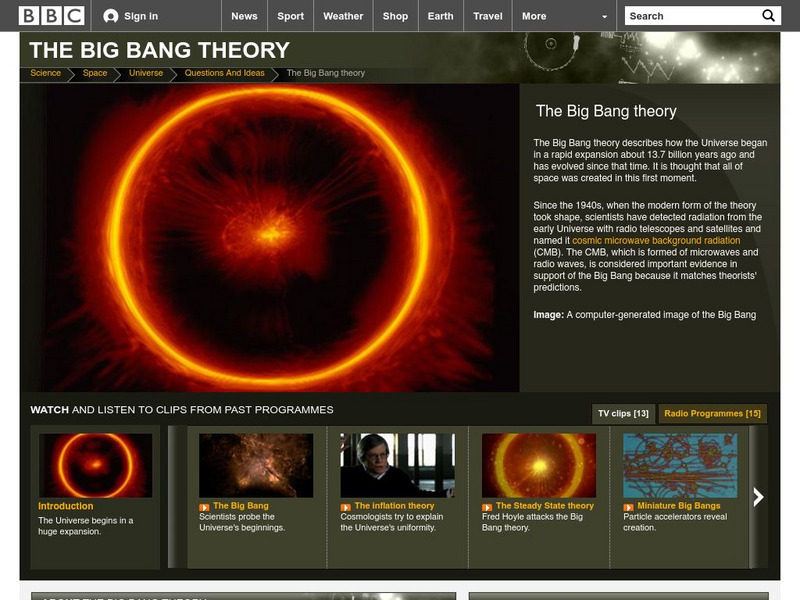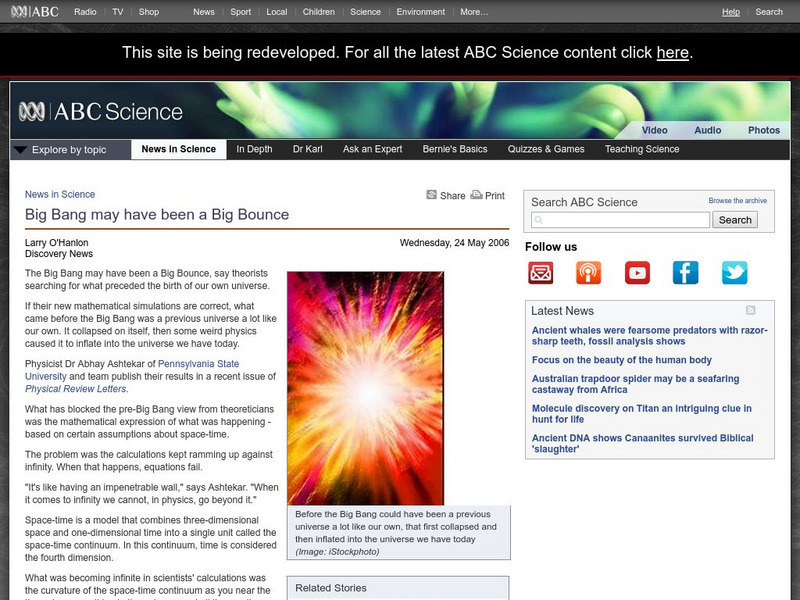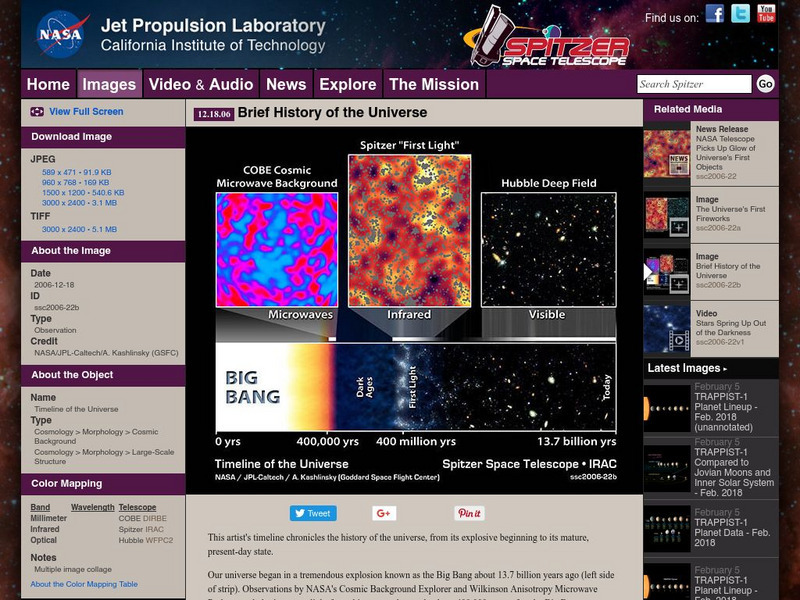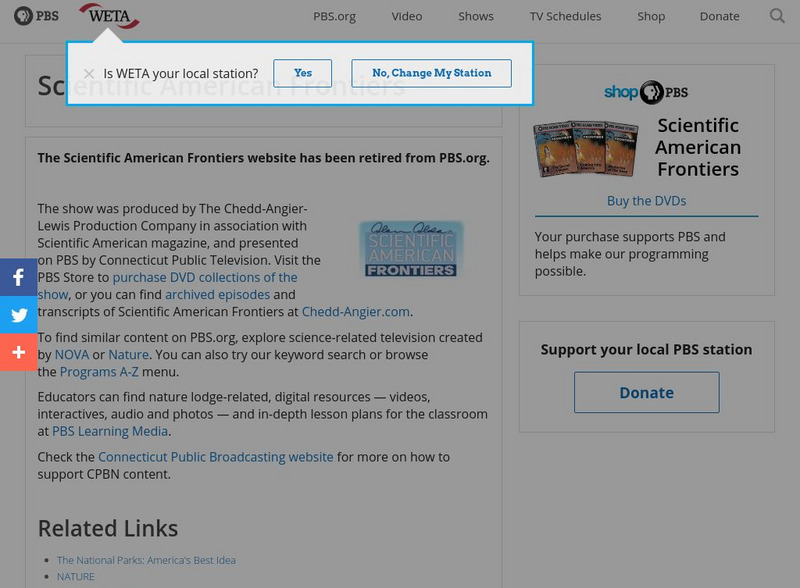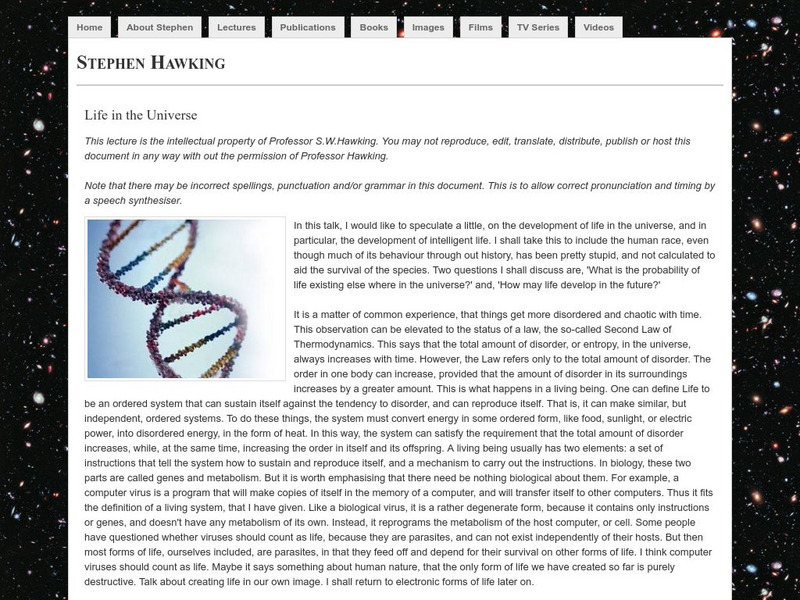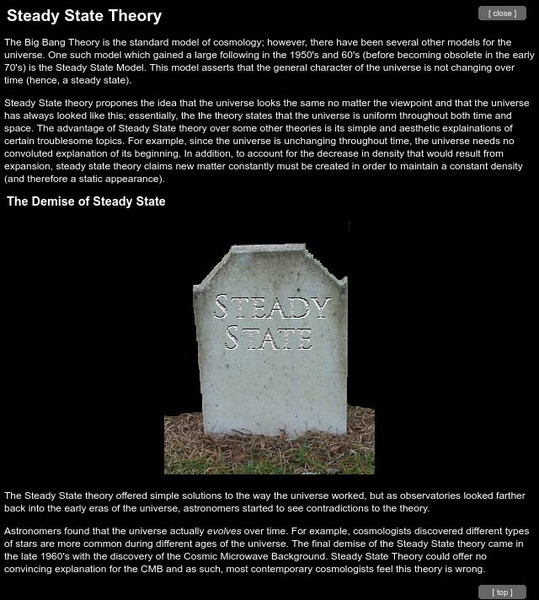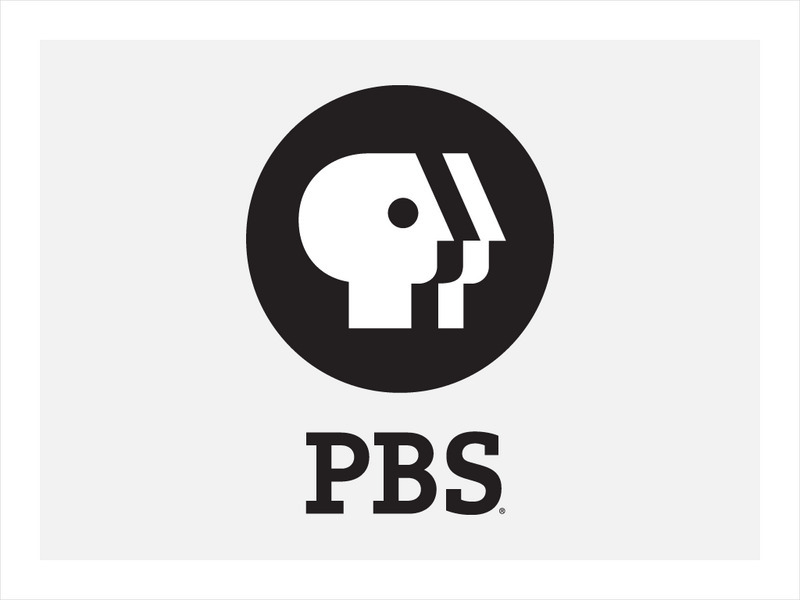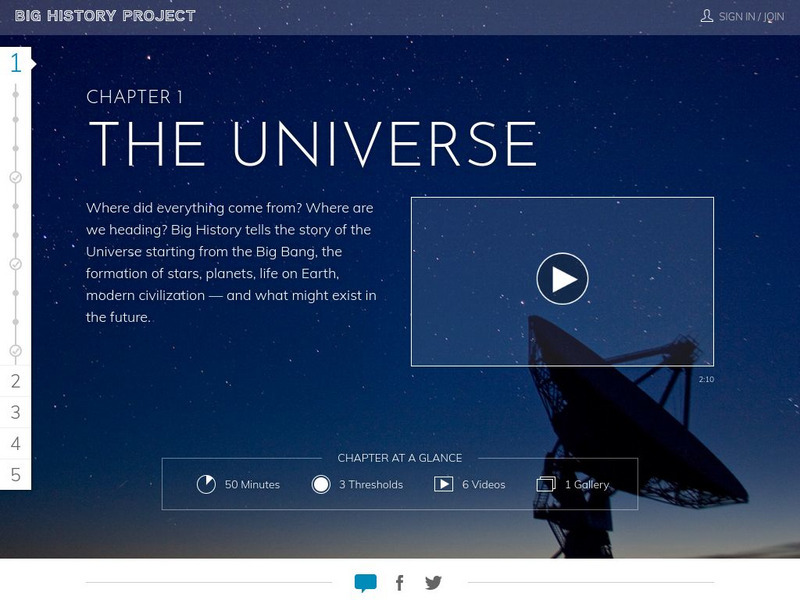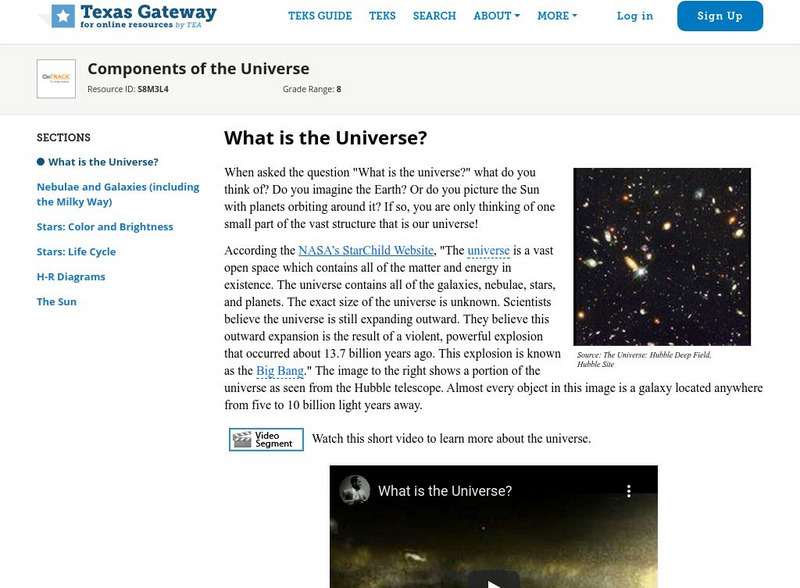Hi, what do you want to do?
Other
American Institute of Physics: Ideas of Cosmology: Big Bang or Steady State?
Find out about the Steady State Theory of the origin of the universe. Learn about the scientific thinking and historical findings supporting this theory which states that new matter is continuously being created.
American Museum of Natural History
American Museum of Natural History: O Logy: How Did the Universe Begin?
Bite-size introduction to two scientists-Hubble and Lemaitre-who played key roles in formulating the theory of the origin of the universe known as the big bang. Includes an interactive timeline on which you can plot out the approximate...
TED Talks
Ted: Ted Ed: The Beginning of the Universe, for Beginners
How did the universe begin and how is it expanding? CERN physicist Tom Whyntie shows how cosmologists and particle physicists explore these questions by replicating the heat, energy, and activity of the first few seconds of our universe,...
TED Talks
Ted: Ted Ed: What Is the Universe Expanding Into?
Sajan Saini explains the existing theories around the Big Bang and what, if anything, lies beyond our universe.
Khan Academy
Khan Academy: Infographic: Timeline
An all-encompassing historical timeline from the Big Bang Theory to modern-day. PDF is available to download.
Khan Academy
Khan Academy: Guide, Slides, and Text Reader
A unit planner for teachers who want to use Khan Academy's unit on the Big Bang theory. Teachers can find teaching guides, unit slides, and reading materials.
Khan Academy
Khan Academy: Video Transcripts
Video transcripts from the collection of videos from a unit on the Big Bang theory.
American Museum of Natural History
American Museum of Natural History: Profile: Georges Lemaitre
Find out about the life and work of the father of the Big Bang theory, Georges Lemaitre. This article describes the origin of the cosmology theory and its growing acceptance among scientists. This is an excerpt from COSMIC HORIZONS:...
PBS
Nova: History of the Universe
This interactive timeline provides information on the big bang as well as other major events of universe evolution. It also provides predictions about the universe's future.
BBC
Bbc: Origin of the Universe
Try this introduction to ideas about how the universe began and how it might end. Topics include; the big bang and its echoes, antimatter, and inflation/expansion of the universe.
Science Struck
Science Struck: How Was the Earth Created
This resource gives a detailed explanation of the stages that the Earth and the solar system went through beginning with their origins in the Big Bang up to the present time.
European Space Agency
European Space Agency: Story of the Universe
The story of the universe is told in this engaging site by the European Space Agency. The history of European space science is timelined with dates ranging from 1066 to present day. The birth of galaxies, the big bang, and the beginnings...
Australian Broadcasting Corporation
Australian Broadcasting Corporation: News in Science: Big Bang May Have Been a Big Bounce
From ABC News in Science, Larry O'Hanlon's article suggests the possibility of the Big Bang having been created out of the remains of a previous universe which collapsed upon itself.
California Institute of Technology
Spitzer Science Center: Brief History of the Universe
Beginning with an image termed the "Brief History of the Universe" this site examines (briefly, as noted) a timeline of the universe as dictated by the image. The timeline includes information on the big bang theory, the dark ages, the...
Khan Academy
Khan Academy: Activity: This Threshold Today
Did you know there are connections between our world today and the Big Bang? In this activity, students will read news articles that reveal these unexpected connections to understand how things we learn today are related to what we know...
PBS
Pbs Teachers: Life's Big Questions: How Did the Universe Begin?
Investigate the Big Bang Theory of the origin of the universe by researching the light spectrum and the actions of light waves. Create models that illustrate red shift in a moving star and the expansion of the universe.
PBS
Pbs Learning Media: Relativity and the Cosmos
This illustrated essay from the NOVA Web site introduces the basic concepts of Einstein's General Theory of Relativity and what we know about cosmology as a result.
Other
Stephen W. Hawking: Lectures: Life in the Universe
This lecture covers the topic of life now and into the future, including the role genetic engineering will play.
Other
Universe Adventure: Steady State Theory
We have all heard of the Big Bang Theory for the beginning of the universe, but there are other theories of how it all began. Here is a brief explanation of the Steady State Theory, a theory which is no longer thought to be a possibility.
PBS
Pbs Teachers: Mysteries of the Universe
Consider the issues surrounding the world of space exploration including the new fields of archaeoastronomy and astrobiology. Investigate zero gravity, the Big Bang theory, life in space and how sound travels in a vacuum.
PBS
Pbs Teachers:origins Back to the Beginning
This hour long program by NOVA is split into six segments and examines a issues influencing scientists' current understanding of how the universe was formed. This includes The Big Bang and its lasting effects.
Other
Big History Project: Chapter 1: The Universe
Chapter 1 of Big History Project, learning module introduces history from the origins of the Universe. Site contains adaptable classroom material geared toward middle and high school students, including informational text, engaging...
Texas Education Agency
Texas Gateway: What Is the Universe?
The following tutorial is an explanation of what the universe is composed of.
NASA
Nasa: Image Science Center: Ask the Space Scientist
A NASA scientist, Dr. Sten Odenwald, answers many students' questions. Topics include planets, galaxies, black holes, the origin of the universe, and common misconceptions about space.












